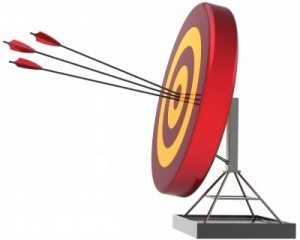10 Ways Assessments Can be Useful in Your Career
 Assessments are useful in your career. The results can be very illuminating to the job searcher. They can help steer your career in a direction of meaningful work. Frequently companies give assessments before hiring. What do assessments say about you? It is useful to take some assessments yourself before a hiring manager asks you to do it. Knowing yourself really well will help you to remain calm and answer the assessment questions honestly. Self knowledge is the key to finding a job that really suits you.
Assessments are useful in your career. The results can be very illuminating to the job searcher. They can help steer your career in a direction of meaningful work. Frequently companies give assessments before hiring. What do assessments say about you? It is useful to take some assessments yourself before a hiring manager asks you to do it. Knowing yourself really well will help you to remain calm and answer the assessment questions honestly. Self knowledge is the key to finding a job that really suits you.
- Self-assessments get you to think strategically about yourself. At least yearly you need to look at yourself to determine your strengths and skills, identify the areas that need more development and put a plan together to get training and experience in the areas you want to develop. Looking at your vision for your career should help you to see where your strengths and skills fit into your total plan.
- A communications assessment will tell you what others learn about you from the way you speak and behave. The DISC assessment can help you to see what your communication and behavioral style tells others about you. You can learn to adapt your behavior and communication style to suit your situation.
- A behavioral assessment will teach you how to identify the behavioral style of those you work with. Once you understand the way others like to be communicated with you can adjust your style to that of your audience. Better yet if your work team has used the DISC you and they will have a better understanding of individual differences and either adjust or acknowledge your styles. You will also appreciate the value of all styles in the workplace.
- Assessments help to validate your own self-assessment. If you believe you have a particular strength it is helpful to get support from an assessment that in fact you do have that strength. One assessment that can be helpful comes with the book Strength Finder 2.0 by Tom Rath. http://www.amazon.com/exec/obidos/asin/159562015X/parkerassociates
- Assessments give you confidence and language to speak about your strengths, style and skills to others. Some people may find it difficult to talk about themselves. To many it feels like boasting and many of us learned in childhood that was not a good thing to do. In a work situation it is necessary to “toot your own horn” and therefore if you are at a loss for the right words an assessment can give you those words and the confidence to say them with commitment.
- From some assessments you will learn how others see you. In a 360 assessment your work group will give you feedback anonymously. The data is then collected so that you get a picture of how the group sees you.
- Assessments will help you writing a resume, answering interview questions and branding. The more you understand yourself and are confident in what you are saying the more you will impress those who are in position to hire or promote you. In the course of learning from your assessments you may also find what makes you stand out from others.
- Assessments are objective and many have had their validity verified. Except for the assessment that is done by your work colleagues assessments are usually done by your answering questions about yourself. Assessments have no agenda or preconceived ideas about you. You may in fact learn some things you did not know about yourself. Before discarding the results that you object to ask some trusted sources whether what you found offensive is in fact the way they see you.
- Assessments can help to start a useful conversation with a career coach or friend. Even assessments that are just checklists get you to think about whether the results are true or not. Some assessments have no real validity. We take them for fun. I’m talking about the short questionnaires that appear in magazines. Assessments always give you something to think about even if it is just “Is this really a valid way to assess this?”
- Assessments can help you to guide your career by helping you to build on the strengths you already have and to develop any weaknesses that you see are vital for your career and/or that really interest you. They also can let you see where you might need some support. A career coach can be helpful in steering you to the appropriate assessments, guiding you to understand their meaning for you and your career, and helping you to initiate the changes you decide are necessary.




